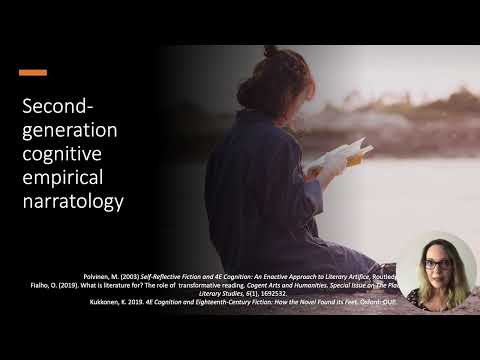 Speaker: Olivia Fialho @ofialho
Speaker: Olivia Fialho @ofialho
 Affiliation: Utrecht University & Huygens Institute (KNAW)
Affiliation: Utrecht University & Huygens Institute (KNAW)
Title: The Phenomenology of Moral Residue Reading Experiences Among Healthcare Professionals: Towards a Typology
Abstract (long version below): We delve into the power of literary fiction in medical ethics education, focusing on moral residue (MR) experienced by healthcare practitioners (and other moral agents) when they perceive their own failure to meet moral requirements despite other people’s tendency not to blame them. Four inter-reliant papers describe ongoing research in an ERC Advanced Grant project (see Acknowledgement below), aimed at revolutionizing training of professionals by utilizing literary texts: these papers conceptualize and create a typology of MR, devise a measure for MR awareness, pinpoint text and context factors that may enhance awareness of MR, and implement an intervention using literary, fictional scenarios to facilitate moral learning in medical ethics.

 Long abstract
Long abstract
The aim of this paper is to offer a ‘rich description’ of moral residue reading experiences by articulating its nature and structure in two interview sessions with health care practitioners. Participants are pre-selected on the basis of having lived through moral residue situations at the workplace. Both interview sessions follow a phenomenological interview schedule designed to gain access to how readers describe their subjective experiences of reading experiences, adapted to the medical ethics context. In the first session, participants read (self-)selected text extracts from world literature narrating situations of moral residue. Their most memorable reading experiences are explored. In the second session, one participant-selected story is reread, with a focus on five evocative passages. Data analysis follows Lex-Nap methodology. As a result, an inventory of moral residue reading experiences will be offered, which will be the basis for the articulation of an empirical typology of moral residue reading experiences (WP1) and for the creation of a moral residue scale, with the suggestion of subscales and corresponding items that are based on how readers express their experiences of moral residue reading (WP2). Furthermore, we will comment on the extent to which preliminary findings seem to validate previous typologies of reading experiences. Ultimately, we will provide a fuller description of how literary reading might impact (and perhaps modify) readers’ moral self-constructs.

